Is Banana A Weight Gain Or A Weight Loss Fruit?
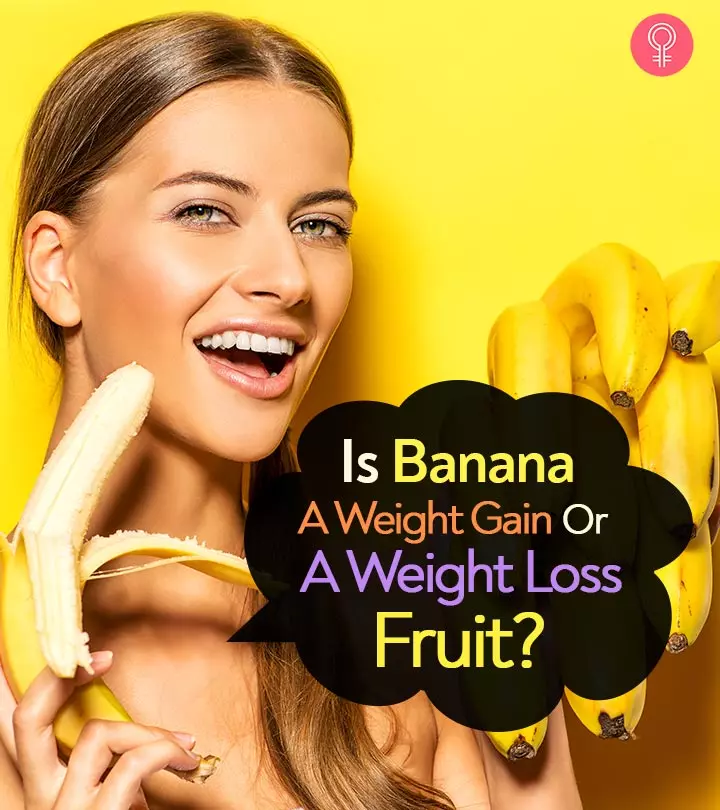
Fruits and vegetables are always the best option to keep you healthy and fit. However, bananas have always been controversial – are they fattening, or do they aid weight loss?
It is claimed that eating banana and milk for a few days helps you shed some flab. Nutritionists also suggest that you eat at least one banana a day. But on the other hand, athletes eat bananas as a pre-workout meal to boost up energy and bulk up muscle mass.
This article explores the relationship between banana and weight to figure out if it is a weight loss or a weight gain fruit. Swipe up to find out more!
In This Article
Nutrition Facts Of Bananas
Banana is loaded with nutrients. It is a cost-effective and quick source of energy. A medium-sized banana (~118 g) provides 27 g of carbohydrates, 3.1 g of fiber, and 105 calories of energy. It also provides 422 mg of potassium and 0.43 mg of vitamin B6 (1).
Half of the total carbohydrates in a ripe banana are sugars (14.4 g) that provide quick energy to athletes to improve performance (1).
Green banana contains resistant starch (RS) and loads of fiber (2). Upon fermentation in the gut, RS produces a short-chain fatty acid called butyrate. Butyrate improves your gut health and prevents constipation (3).
A study conducted at the Brigham Young University (USA) found that increased fiber intake aids weight loss and reduces excess calorie intake (4).
Banana is also high in potassium, which helps lower your BMI and weight (5).
But, the question remains – is banana a weight gain or a weight loss fruit. Let’s dig deeper!
Is Banana A Weight Gain Or Weight Loss Fruit? What Research Says
Banana is a versatile fruit that can be taken in limited portions to lose or maintain weight. Have it as a snack instead of a full meal.
- Banana is a rich source of fibre that adds bulk to your meal and cuts down unnecessary calorie intake (6). Eating a medium-sized banana as a snack aids weight loss.
- Banana is known for its high calorie content. However, a medium-sized banana is loaded with digestible carbs and sugars that are satisfying and better than other sugary processed snacks (1).
- The resistant starch (RS) in both green and ripe banana spromotes fat oxidation, lowers fat storage in adipose cells and may promote weight loss (7), (8).
- Banana is rich in vitamins and minerals (micronutrients). These micronutrients act as cofactors (non-protein chemical compounds that accelerate enzymatic activity to release energy) in glucose metabolism and energy expenditure. This helps in reducing the risk of obesity and diabetes (9).
- Both ripe and unripe banana have a low glycemic index and a high satiety index (10), (11). A study conducted in Spain found that a low-GI, energy-restricted diet was more effective in aiding weight loss than a low-fat, high-GI diet (12).
- Banana is high in calories and sugar. As it is a cost-effective energy source, it improves the exercise endurance of athletes (1). Therefore, eating bananas along with other healthy foods or protein supplements helps you gain weight.
Now that you know how bananas can help you lose as well as gain weight, let’s check out how you can consume them for both purposes.
How To Eat Bananas To Lose Weight
Banana has a high satiety index and is loaded with fiber. Eating banana as a snack or as a pre-workout meal helps supply the necessary nutrients needed to make you feel full and provide energy.
How To Eat Bananas To Gain Weight
Bananas are rich in calories, why is why eating bananas is considered to be an age-old method to gain weight. The best way to incorporate bananas in your regular diet for weight gain is to add it to smoothies or milkshakes.
Besides its weight gain and weight loss potential, banana provides a host of other health benefits. Check out below.
Other Potential Benefits Of Banana
- Banana contains pectin and resistant starch, which delay gastric emptying, improve glucose tolerance, and help in the moderate regulation of glucose (13), (14). Nevertheless, always consult a nutritionist to plan out a balance diet with banana intake for diabetes.
- The resistant starch in raw banana escapes digestion in the small intestine and gets fermented to produce short-chain fatty acids. This stimulates colonic blood flow and improves gut health (15).
- Banana is a rich source of potassium (1). Potassium protects the heart and lowers the risk of stroke, especially in older women (16).
- The bioactive compounds in banana improve your overall health. They reduce the incidence of degenerative diseases and oxidative stress (17).
Now that you know all the ways that banana improves your health, let’s check out how you can make a delicious smoothie with it!
Banana Shake Recipe
Ingredients
- 1-2 bananas
- ½-1 glass of milk
- Sugar (optional)
- Vanilla extract
- Ice cream (optional)
- Almonds
Procedure
- Add sliced bananas, a glass of milk, and ice to a blender.
- Add a scoop of ice cream.
- Add 4-5 almonds.
- Blend the ingredients until the mixture becomes smooth and thick.
- Pour the smoothie into glasses and add sugar, if needed.
- Serve and enjoy.
You can also try different flavours of ice cream and add various dry fruits like raisins, walnuts, and cashews to enhance the richness and nutrition value of your banana shake. Not only does it make your banana milkshake tasty, but also adds a high nutrition value to it.
Conclusion
There is very little evidence about whether banana makes you lose or gain weight. However, it is always a healthy snack option to fill up your stomach. If you are on diet, there is no harm in including banana in your meals.
Just makes sure to eat it in controlled portions and not as a whole meal.
Consult your nutritionist for a balanced approach.
Frequently Asked Questions
When should I eat banana to lose weight?
You can eat a banana as a mid-morning or a pre-workout snack to boost your energy. You can eat a medium-sized banana as an early morning snack to kick start your metabolism and uplift your mood.
How many bananas should I eat per day to gain weight?
Banana is not a weight-gain food unless combined with smoothies or protein supplements to increase your total calorie intake. Combining banana smoothie with weight-training exercises helps you gain weight.
Does eating a banana before bed help you lose weight?
The sugar content of banana is difficult to digest when taken at night. Therefore, it is not advisable to eat banana at night if you want to lose weight.
References
Articles on StyleCraze are backed by verified information from peer-reviewed and academic research papers, reputed organizations, research institutions, and medical associations to ensure accuracy and relevance. Read our editorial policy to learn more.
- Nieman, David C., et al. “Bananas as an energy source during exercise: a metabolomics approach.” PLoS One 7.5 (2012): e37479.
https://www.ncbi.nlm.nih.gov/pmc/articles/PMC3355124/ - Falcomer, Ana Luisa, et al. “Health benefits of green banana consumption: a systematic review.” Nutrients 11.6 (2019): 1222.
https://www.ncbi.nlm.nih.gov/pmc/articles/PMC6627159/ - Leonel, Alda J., and Jacqueline I. Alvarez-Leite. “Butyrate: implications for intestinal function.” Current Opinion in Clinical Nutrition & Metabolic Care 15.5 (2012): 474-479.
https://pubmed.ncbi.nlm.nih.gov/22797568/ - Tucker, Larry A., and Kathryn S. Thomas. “Increasing total fiber intake reduces risk of weight and fat gains in women.” The Journal of nutrition 139.3 (2009): 576-581.
https://pubmed.ncbi.nlm.nih.gov/19158230/ - Tal, Brurya, et al. “Increment in Dietary Potassium Predicts Weight Loss in the Treatment of the Metabolic Syndrome.” Nutrients 11.6 (2019): 1256.
https://www.ncbi.nlm.nih.gov/pmc/articles/PMC6627830/ - Slavin, Joanne L. “Dietary fiber and body weight.” Nutrition 21.3 (2005): 411-418.
https://pubmed.ncbi.nlm.nih.gov/15797686/ - Sidhu, Jiwan S., and Tasleem A. Zafar. “Bioactive compounds in banana fruits and their health benefits.” Food Quality and Safety 2.4 (2018): 183-188.
https://academic.oup.com/fqs/article/2/4/183/5164297 - Higgins, Janine A. “Resistant starch and energy balance: impact on weight loss and maintenance.” Critical reviews in food science and nutrition 54.9 (2014): 1158-1166.
https://pubmed.ncbi.nlm.nih.gov/24499148/ - Via, Michael. “The malnutrition of obesity: micronutrient deficiencies that promote diabetes.” ISRN endocrinology 2012 (2012).
https://www.ncbi.nlm.nih.gov/pmc/articles/PMC3313629/ - Hettiaratchi, U. P. K., S. Ekanayake, and J. Welihinda. “Chemical compositions and glycemic responses to banana varieties.” International journal of food sciences and nutrition 62.4 (2011): 307-309.
https://pubmed.ncbi.nlm.nih.gov/21250902/ - Holt, Susanne HA, et al. “A satiety index of common foods.” European journal of clinical nutrition 49.9 (1995): 675-690.
https://pubmed.ncbi.nlm.nih.gov/7498104/ - Juanola-Falgarona, Martí, et al. “Effect of the glycemic index of the diet on weight loss, modulation of satiety, inflammation, and other metabolic risk factors: a randomized controlled trial.” The American journal of clinical nutrition 100.1 (2014): 27-35.
https://pubmed.ncbi.nlm.nih.gov/24787494/ - Duan, Xuewu, et al. “Modification of pectin polysaccharides during ripening of postharvest banana fruit.” Food Chemistry 111.1 (2008): 144-149.
https://www.sciencedirect.com/science/article/pii/S0308814608003440 - Schwartz, Sheldon E., et al. “Sustained pectin ingestion: effect on gastric emptying and glucose tolerance in non-insulin-dependent diabetic patients.” The American journal of clinical nutrition 48.6 (1988): 1413-1417.
https://pubmed.ncbi.nlm.nih.gov/2849298// - Topping, David L., and Peter M. Clifton. “Short-chain fatty acids and human colonic function: roles of resistant starch and nonstarch polysaccharides.” Physiological reviews (2001).
https://pubmed.ncbi.nlm.nih.gov/11427691/ - Seth, Arjun, et al. “Potassium intake and risk of stroke in women with hypertension and nonhypertension in the Women’s Health Initiative.” Stroke 45.10 (2014): 2874-2880.
https://pubmed.ncbi.nlm.nih.gov/25190445/ - Singh, Balwinder, et al. “Bioactive compounds in banana and their associated health benefits–A review.” Food Chemistry 206 (2016): 1-11.
https://pubmed.ncbi.nlm.nih.gov/27041291/ - 11 Amazing Benefits Of The Banana And Milk Diet
- The 15 Best Fruits For Weight Loss
- 25 Best Superfoods For Weight Loss Backed By Science
- 30 Amazing Diet Recipes For Weight Loss
Read full bio of Priyanka Sadhukhan



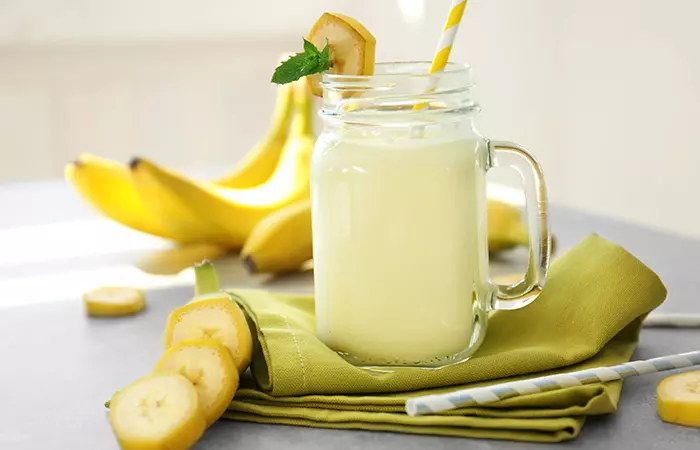
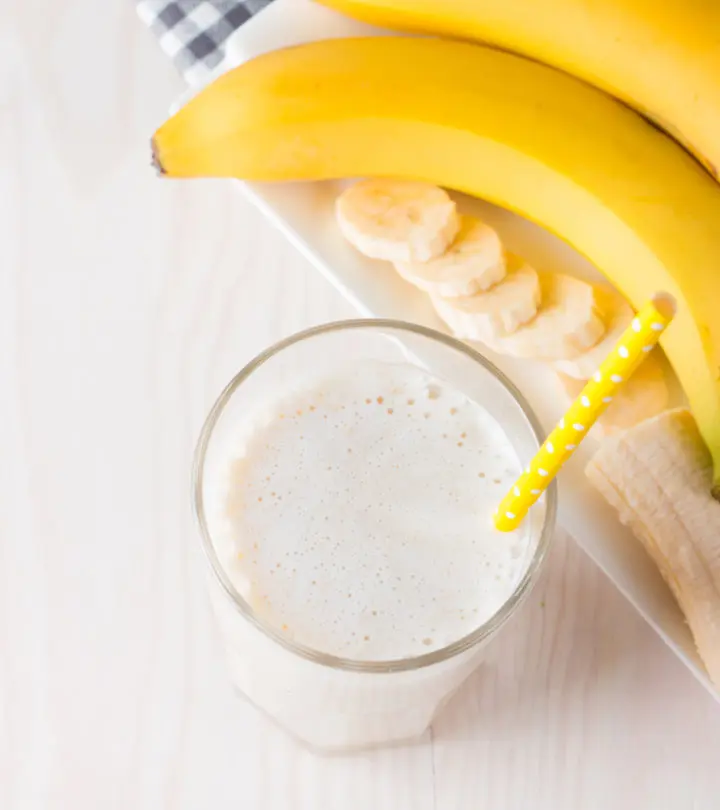
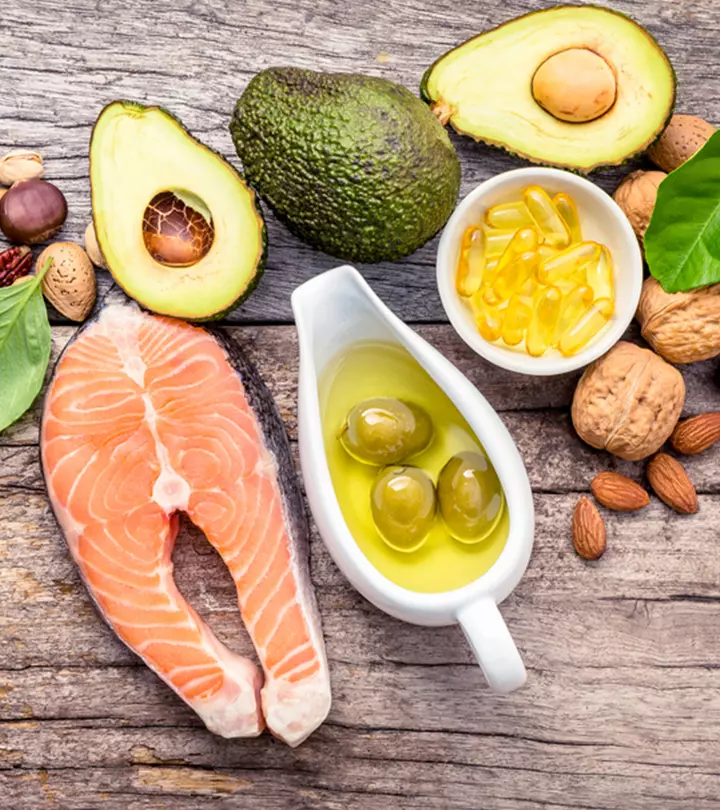
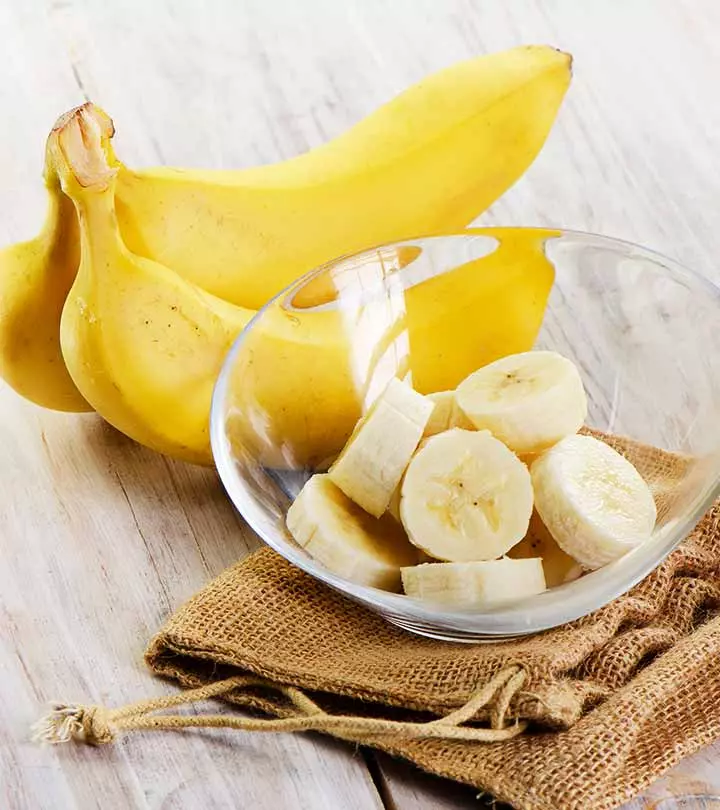


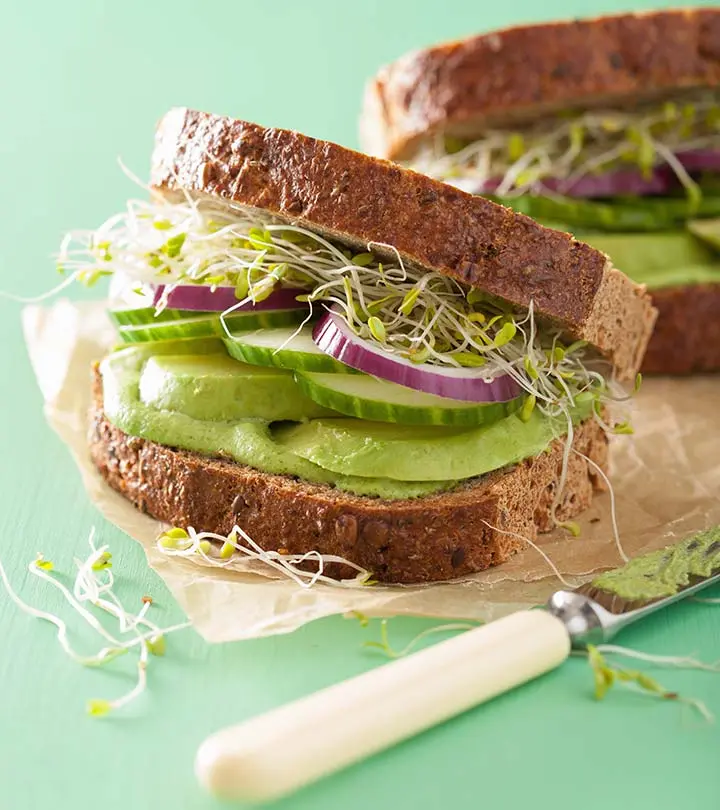
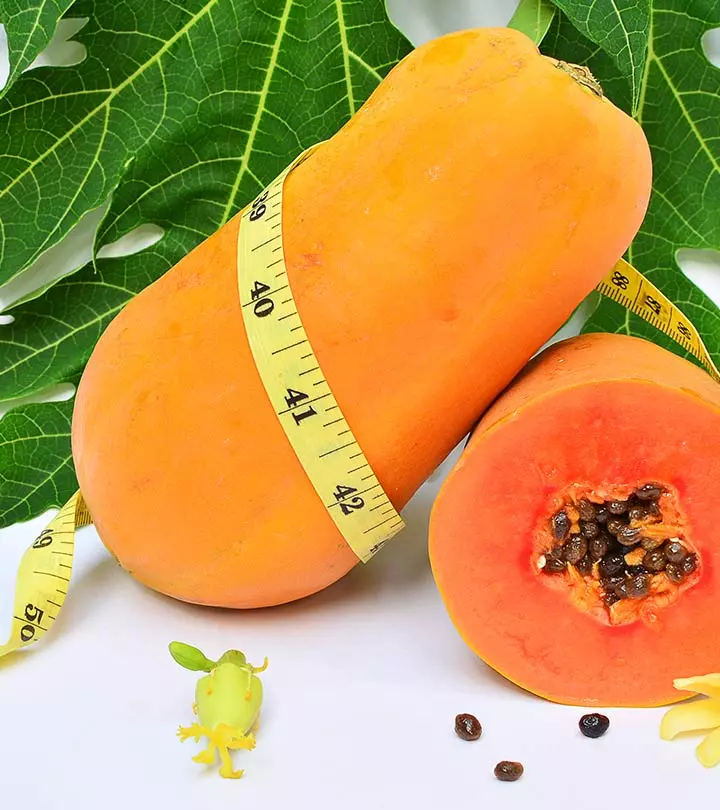
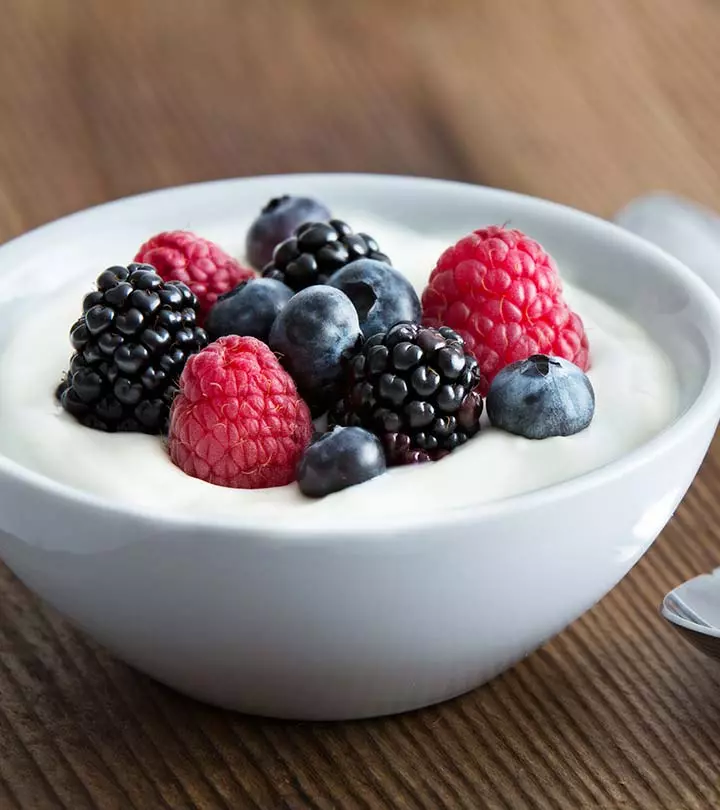
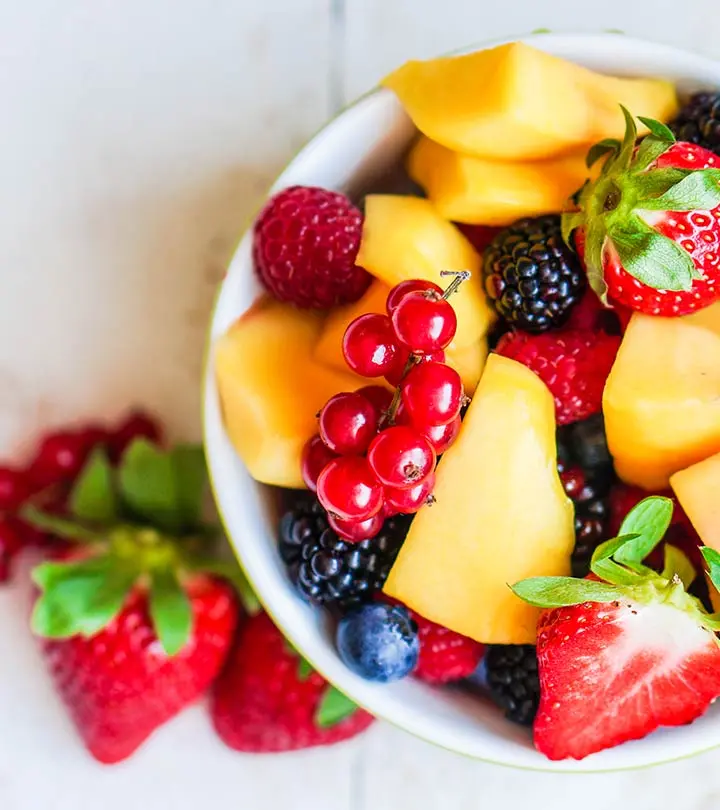
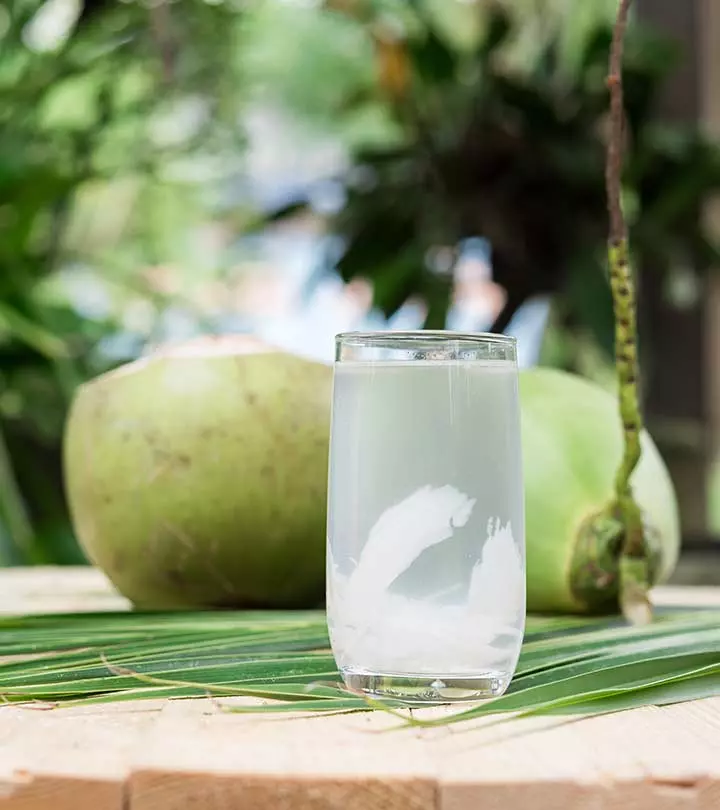

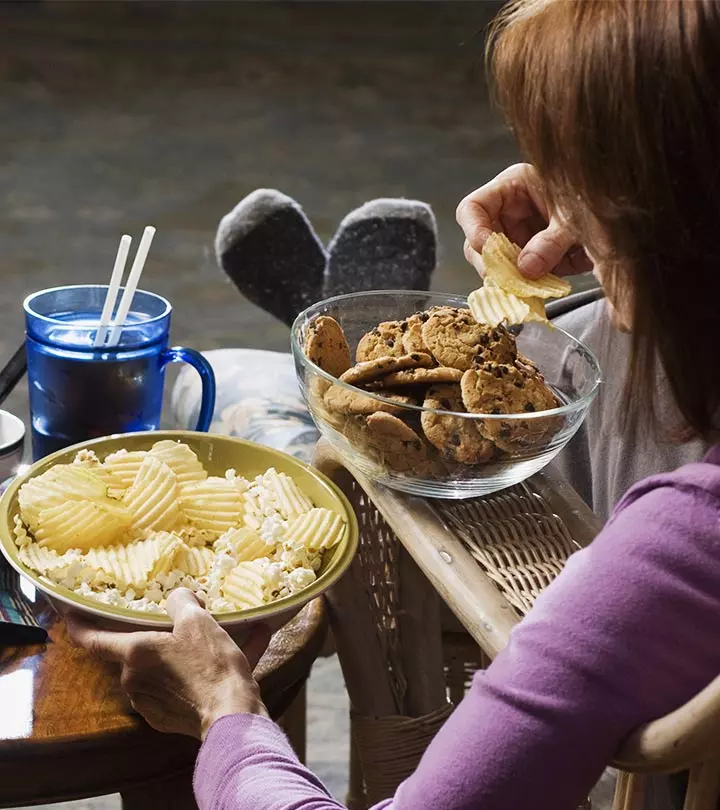
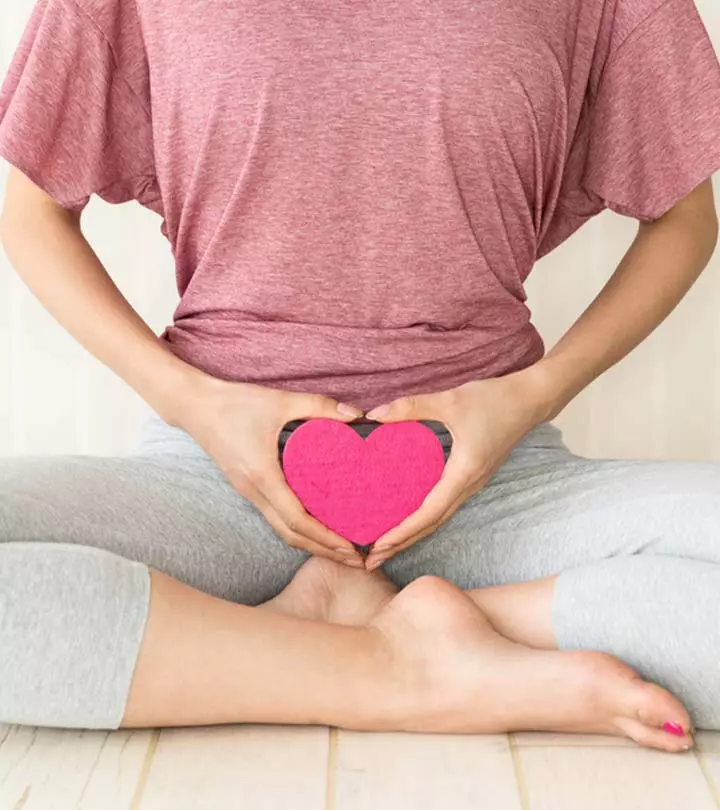


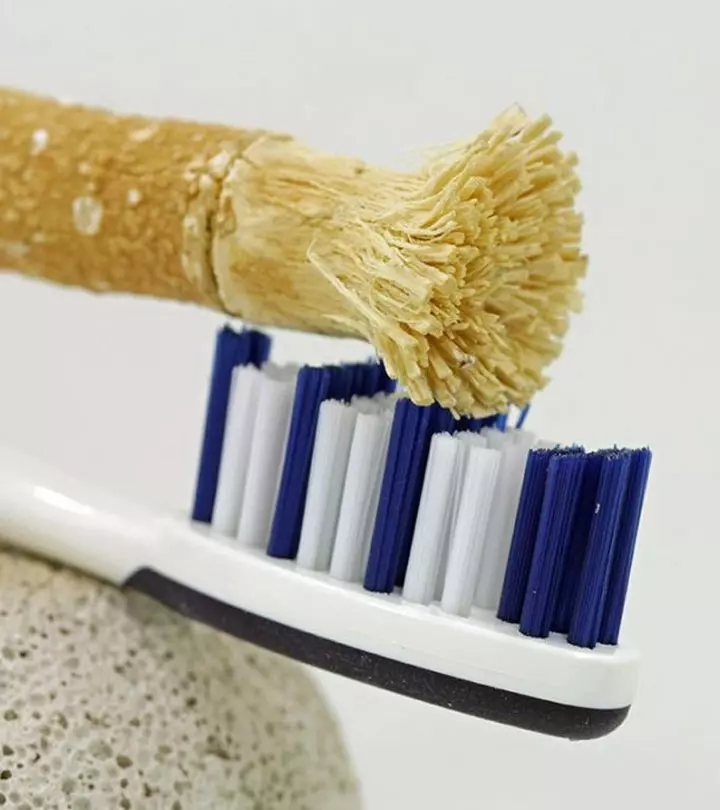

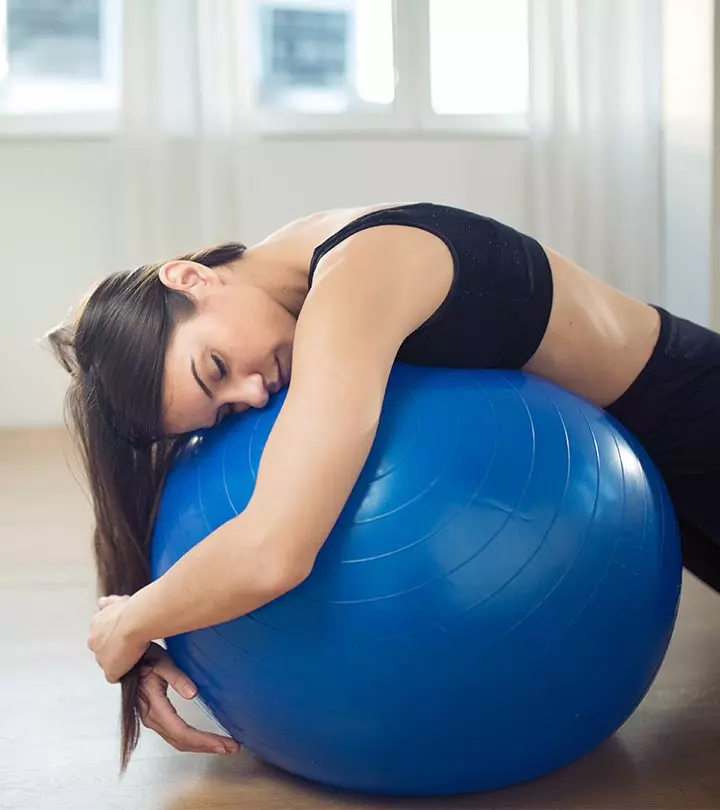


Community Experiences
Join the conversation and become a part of our empowering community! Share your stories, experiences, and insights to connect with other beauty, lifestyle, and health enthusiasts.